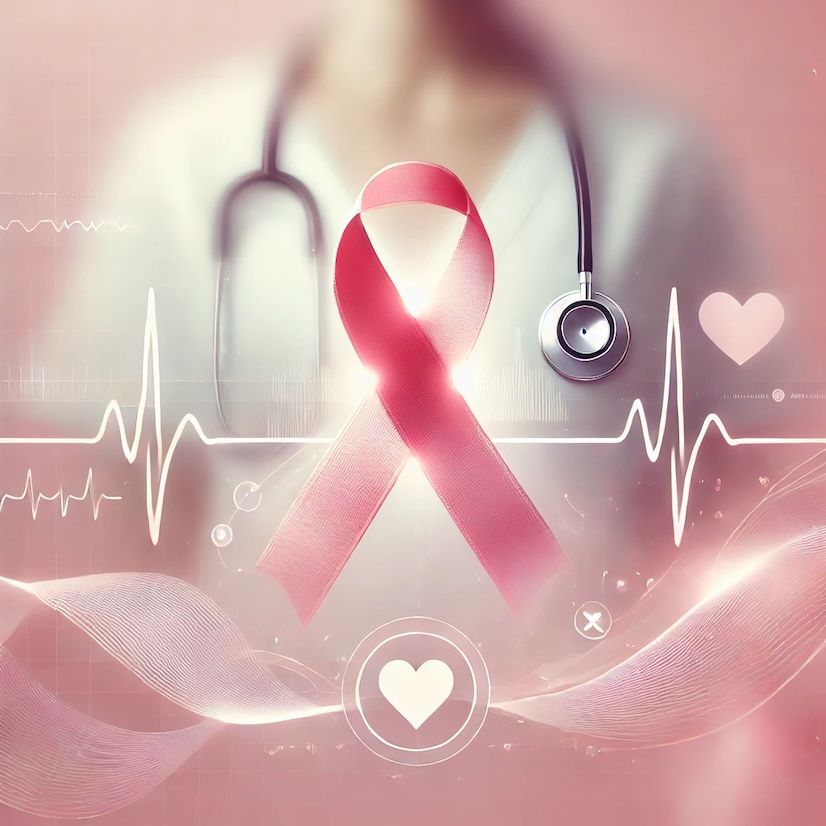

Breast cancer is a condition where abnormal cells in the breast grow uncontrollably, forming a tumor that can spread to other parts of the body. It is one of the most common cancers, affecting both women and, less commonly, men. Early detection through screenings like mammograms is crucial for successful treatment.

Breast cancer can present with various symptoms, including a lump or mass in the breast or underarm, changes in breast size, shape, or appearance, and skin dimpling resembling an orange peel. Other signs include nipple discharge, especially if bloody, nipple retraction (turning inward), and redness or scaling of the breast skin or nipple. Early detection of these symptoms is critical for prompt diagnosis and treatment.
Several factors can increase the risk of breast cancer. Age is a significant factor, with most cases occurring in women over 50. Genetic mutations, such as BRCA1 and BRCA2, and a family history of breast cancer, particularly in close relatives, elevate the risk. Hormonal factors, like prolonged exposure to estrogen, as well as lifestyle choices such as obesity, physical inactivity, alcohol consumption, and hormone replacement therapy, can also contribute to breast cancer development.

Breast cancer diagnosis involves several tests to identify and assess the disease. A mammogram, an X-ray of the breast, is commonly used to detect abnormalities in breast tissue. If further clarification is needed, an ultrasound can help distinguish between solid masses and fluid-filled cysts. A biopsy, where a small sample of breast tissue is taken for analysis, is used to confirm the presence of cancer cells. In some cases, an MRI is performed to provide detailed imaging and assess the extent of the cancer.
Treatment for breast cancer depends on the type, stage, and specific characteristics of the cancer. Surgery is a common option, either removing the tumor (lumpectomy) or the entire breast (mastectomy). Radiation therapy uses high-energy rays to kill cancer cells, while chemotherapy uses drugs to destroy or slow their growth. For hormone receptor-positive cancers, hormone therapy blocks hormones like estrogen from fueling the cancer. Targeted therapy focuses on specific molecules, such as HER2-positive cancers, while immunotherapy helps the immune system fight the disease, especially for certain types like triple-negative breast cancer.
The prognosis for breast cancer varies based on the type and stage at diagnosis. Early detection through regular screenings, such as mammograms, significantly improves treatment outcomes. When diagnosed early, breast cancer can often be treated successfully, and many patients achieve long-term remission, underscoring the importance of timely detection and intervention.

Preventing and detecting breast cancer early can significantly improve outcomes. Regular screening through mammograms remains the most effective tool for early detection, while performing regular breast self-exams helps individuals identify changes in their breasts. Adopting a healthy lifestyle, such as maintaining a healthy weight, exercising regularly, and limiting alcohol intake, can lower the risk of breast cancer. For women with a family history of breast cancer, genetic testing for mutations like BRCA1 and BRCA2 can help assess their risk and guide preventive measures.
Breast cancer can take various forms, with differing levels of severity and treatment approaches. Ductal Carcinoma In Situ (DCIS) is a noninvasive type where abnormal cells remain in the breast ducts. Invasive Ductal Carcinoma (IDC), the most common form, occurs when cancer cells spread beyond the ducts into surrounding tissue and can metastasize. Invasive Lobular Carcinoma (ILC) begins in the milk-producing lobules and can also spread. Triple-Negative Breast Cancer lacks hormone receptors and HER2 proteins, making it more aggressive and harder to treat. HER2-Positive Breast Cancer involves an overproduction of the HER2 protein, which targeted therapies can address. Rare forms include Inflammatory Breast Cancer, an aggressive type causing redness and swelling, and Paget's Disease of the Breast, which affects the nipple and surrounding skin.
